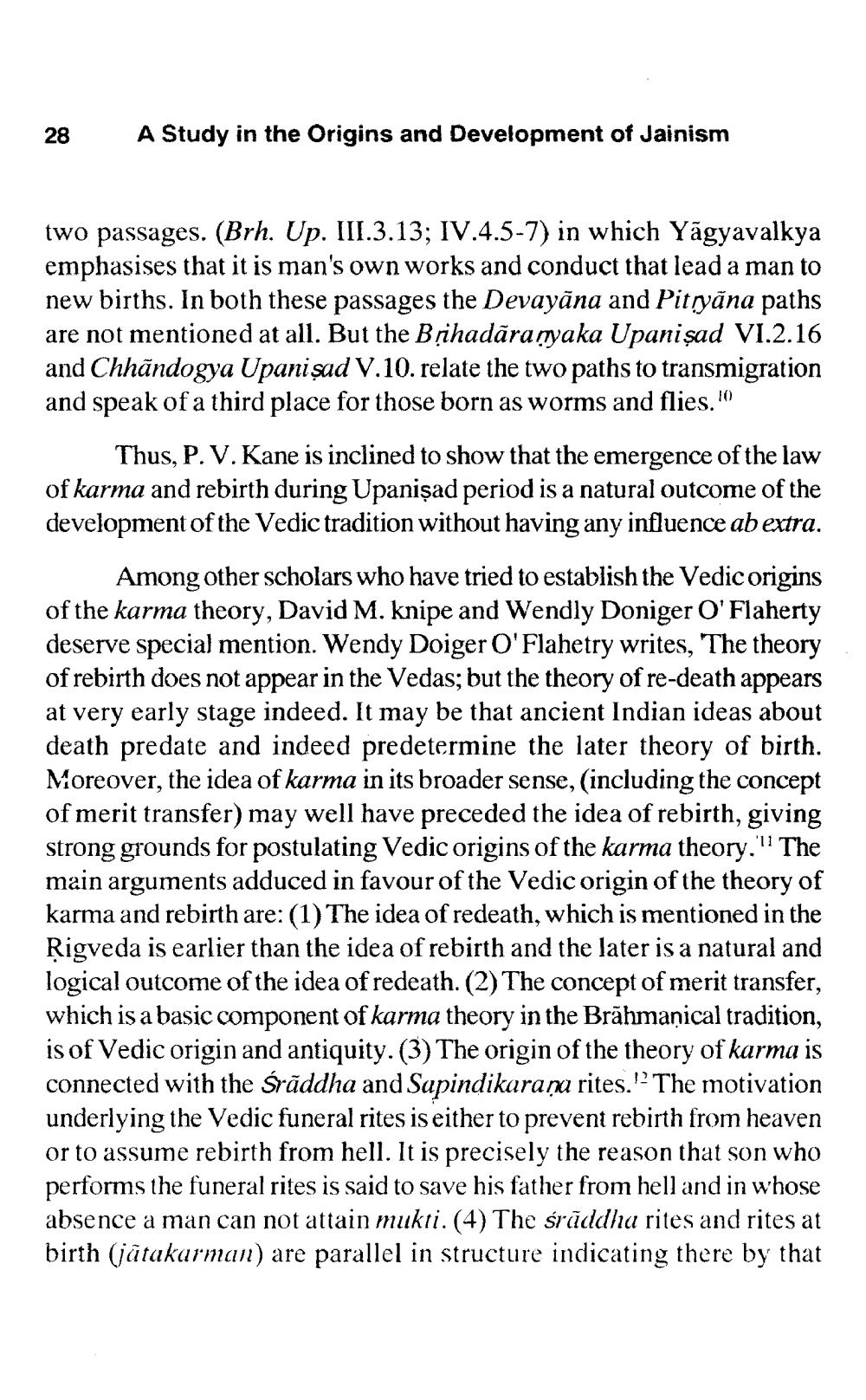________________
28
A Study in the Origins and Development of Jainism
two passages. (Brh. Up. III.3.13; IV.4.5-7) in which Yagyavalkya emphasises that it is man's own works and conduct that lead a man to new births. In both these passages the Devayana and Pitryāna paths are not mentioned at all. But the Brihadaranyaka Upanisad VI.2.16 and Chhandogya Upanisad V.10. relate the two paths to transmigration and speak of a third place for those born as worms and flies."
Thus, P. V. Kane is inclined to show that the emergence of the law of karma and rebirth during Upanisad period is a natural outcome of the development of the Vedic tradition without having any influence ab extra.
Among other scholars who have tried to establish the Vedic origins of the karma theory, David M. knipe and Wendly Doniger O'Flaherty deserve special mention. Wendy Doiger O'Flahetry writes, The theory of rebirth does not appear in the Vedas; but the theory of re-death appears at very early stage indeed. It may be that ancient Indian ideas about death predate and indeed predetermine the later theory of birth. Moreover, the idea of karma in its broader sense, (including the concept of merit transfer) may well have preceded the idea of rebirth, giving strong grounds for postulating Vedic origins of the karma theory." The main arguments adduced in favour of the Vedic origin of the theory of karma and rebirth are: (1) The idea of redeath, which is mentioned in the Rigveda is earlier than the idea of rebirth and the later is a natural and logical outcome of the idea of redeath. (2) The concept of merit transfer, which is a basic component of karma theory in the Brahmaṇical tradition, is of Vedic origin and antiquity. (3) The origin of the theory of karma is connected with the Śrāddha and Sapindikaraṇa rites." The motivation underlying the Vedic funeral rites is either to prevent rebirth from heaven or to assume rebirth from hell. It is precisely the reason that son who performs the funeral rites is said to save his father from hell and in whose absence a man can not attain mukti. (4) The śraddha rites and rites at birth (jātakarman) are parallel in structure indicating there by that




